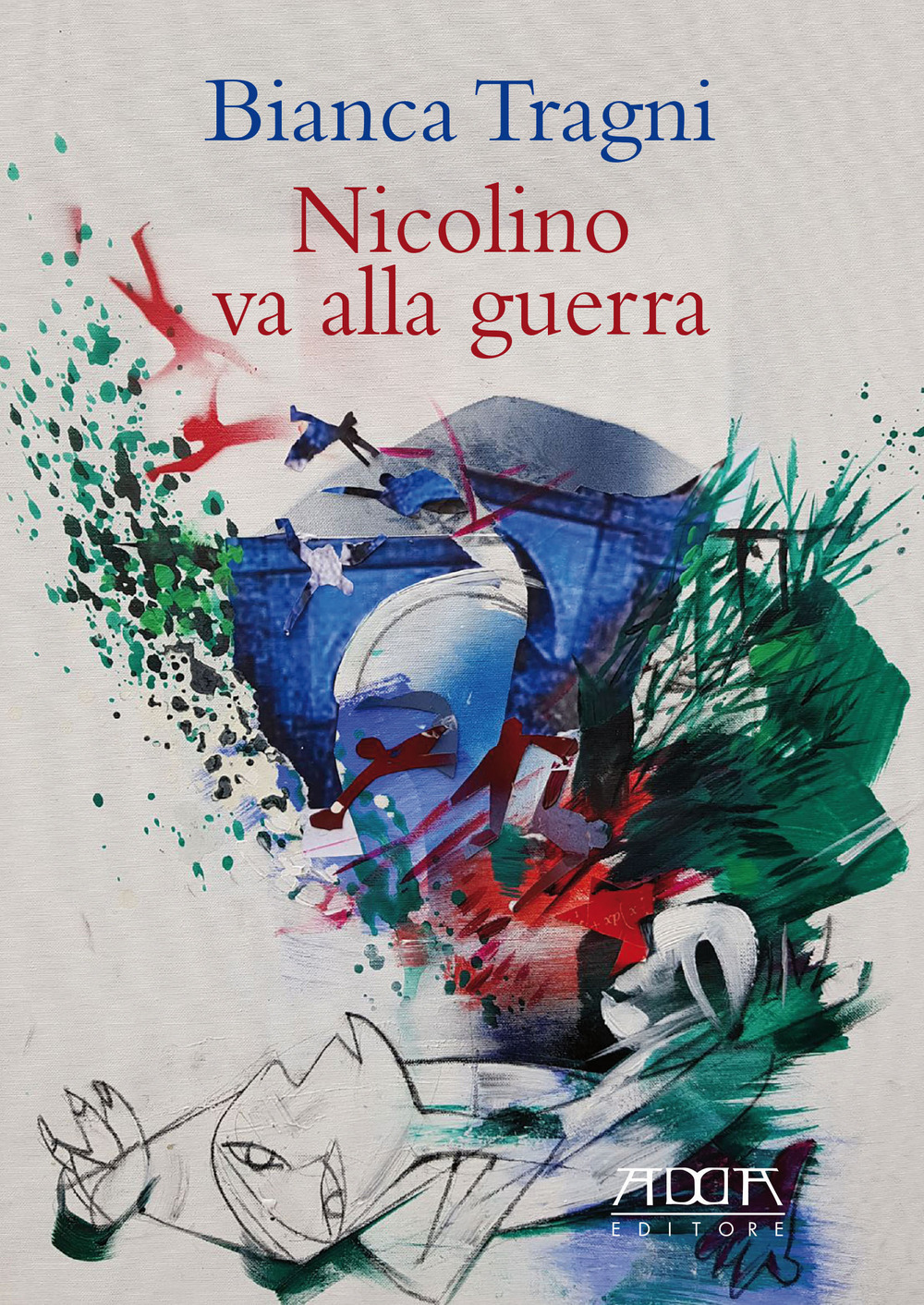“Nicolino va alla guerra” è un romanzo di 222 pagine in grado di spiegare la prima guerra mondiale vissuta da ogni protagonista del racconto ideato dalla scrittrice Bianca Tragni. Nicolino nasce ad Altamura nel 1898, cresce in una famiglia dedita al lavoro agrario. Giuseppe suo padre, in veste di fittaiolo coltiva le terre dei Baroni Melodia, Angela Lossurdo, (Donna Angelina), sua madre, è una mamma dolcissima e attenta. Infatti Nicolino ha quattro fratelli: Evangelista, Donato Giovanni, Stefano e quattro sorelle, Vita Maria, Lucetta, Battista e Annina. I giovani Tragni, per il loro portamento in paese li definiscono i giaiant (i giganti). I fratelli lavorano nei campi, patrune P’ppine li tratta come lavoratori, questi ultimi a piene mani insegnano loro, ogni segreto della campagna murgese. Il tempo passa, trascorre, nel 1915 Evangelista e Stefano partono per il fronte, nel marzo del 1917 “Nicolino va alla guerra”. La patrauna, Donna Angelina, è disperata, non riceve notizie da Evangelista e Stefano, ora vede partire il terzo giaiant di famiglia. Il padre Peppino, figlio di Evangelista Tragni patriota del 1848, pur con grande amarezza accetta anche la partenza di Nicolino. I tre giaiant, hanno un compito ben preciso liberare Trento e Trieste. Nicolino parte dal Distretto Militare di Bari, quindi è trasferito al 10° Reggimento d’Artiglieria di Fortezza, destinazione Forte Tombion, situato tra il Brenta e Cismon del Grappa. Il romanzo di Bianca Tragni entra nei dettagli storici, strategici, tattici di una guerra ricordata come “Grande”, combattuta tra le trincee dell’Isonzo, Tagliamento e Piave: bombe, granate esplosive o cariche di nuovi (…) componenti: gas velenosi. L’importanza delle Crocerossine, della posta ricevuta o mai giunta e delle donnine (involontarie Vittime di Guerra), che in periodi prestabiliti dal Comando dell’Armata visitano il campo elargendo ai fanti meno di cinque minuti per “sognare amori lontani”. Due guerre, la prima di Cadorna e dei suoi Generali, infine Diaz e la vittoria. Nel mezzo una guerra di massa, affrontata da valorosi contadini e da Generali “piuttosto distratti” di cui Nicolino è testimone a partire dalla resa di Caporetto. La moralità, l’ingegno, la forza di Nicolino attraggono il rispetto di commilitoni e superiori. Nicolino è promosso Caporale, ma perde il suo grande amico Ciro. La guerra continua tra le sapienti pagine scritte dall’autrice, ricche di suspense e colpi di scena, (anche affettivi). Trento e Trieste vengono liberate. La guerra è finita, ma per Nicolino e altri commilitoni la guerra continua, a loro il compito, in attesa del rientro ad Altamura, di sminare determinare aree piene di ordigni inesplosi….
Nicolino goes to the war of Bianca Tragni
“Nicolino goes to the war” is a novel of 222 pages, which explain the first world war through the lives of all characters created by the writer Bianca Tragni. Nicolino is born in Altamura in 1898, he grows in a family dedicated to agricultural work. His father, Giuseppe, as a tenant cultivates lands of Baron Melodia. Angela Lossurdo (Donna Angelina), his mother, is a sweet and devoted mother. Nicolino has four brothers, Evangelista, Donato, Giovanni, Stefano and four sisters, Vita Maria, Lucetta, Battista and Annina. The young Tragni are known in the village as”giaiant” (the gigants), because of their stature. The brothers work in the field, patrune P’ppine, and together with the workers they learn all the secrets of the murgese land. Time flows and in 1915 Evangelista and Stefano go to the battlefront and in March of 1917 “Nicolino goes to the war”, too. The patruna, Donna Angelina, is desperate. She does not receive any news from Evangelista and Stefano and now she has to bear the departure of the third giaiant of the family. The father Peppino, son of Evangelista Tragni, patriot of 1848, even with great malaise, accepts his departure. The three giaiants have a precise task, they have to free Trento and Trieste. Nicolino takes off from the military district of Bari towards the 10° regiment of Artillery of Fortress, destination Forte Tombion, between Brenta and Cismon del Grappa. The novel describes the historical and strategical details of a war, which is remembered as “Great”, which was fought among trenches of Isonzo, Tagliamento and Piave: bombs, explosive grenades or with new (…) components: poisonous gas. The importance of Red Cross, of the letters, either received or never got to destination, of the occasional lovers (accidental War Victims), who visited the field in pre-established period of time by the Commander of the Army. They gave to the soldiers less than five minutes to “dream remote love”. Two wars, the first of Cadorna and its generals, finally Diaz and the win. This was a war of the masses, which was faced by valorous farmers and by distracted generals, of which Nicolino is a witness. The moral principles, the brilliance and the strength of Nicolino lead to the respect of all the fellow soldiers and all supervisors. Nicolino is promoted to Corporal but loses its friend Ciro. The war goes on, enriched, in the pages of the writer, with suspense and plot twist. Trento and Trieste are freed. The war is finished, but for Nicolino and his fellow soldiers the war continues, they have the task of removing all the bombs from the field. S.J.A.L.





